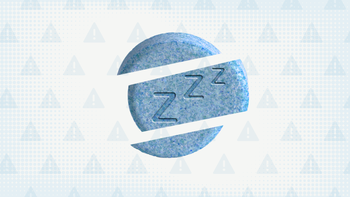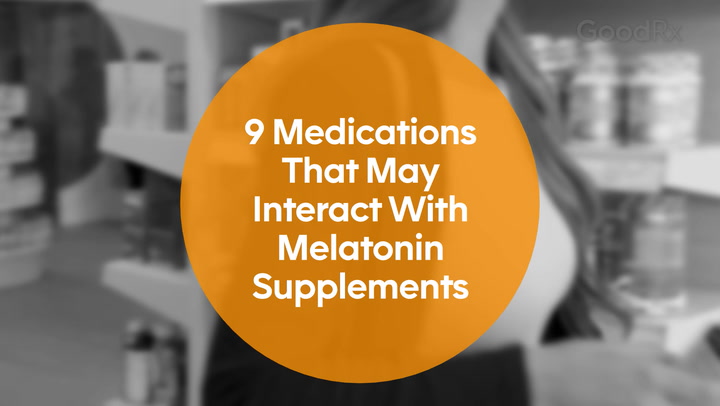
6 Foods Naturally High in Melatonin for a Better Night’s Sleep
Key takeaways:
Melatonin is a natural hormone that plays an important role in sleep.
Foods like pistachios, tart cherries, mushrooms, and tomatoes are good sources of melatonin.
Some diseases can lead to low melatonin levels. In healthy individuals, low melatonin can be due to aging or too much exposure to artificial light in the evenings.

Melatonin is a hormone that your body produces in response to darkness. It plays an important role in regulating sleep-wake cycles. Since many things can get in the way of melatonin production, it’s important to be sure your body is making enough to reap its benefits.
Many foods are natural sources of melatonin and can assist your body with production. Here are some foods high in melatonin to help ensure you’re getting enough of this important hormone.
Which foods are naturally high in melatonin?
Animals, plants, and microorganisms make melatonin. So small amounts of it can be found in certain foods and beverages, making them good natural melatonin sources.
While eating foods high in melatonin can have benefits, it’s hard to know exactly how much is in a specific plant or animal product because the amount varies depending on the variety and growth method. It’s also not totally clear how the body uses and digests melatonin found in foods.
So foods and drinks alone likely won’t have enough melatonin to drastically impact sleep. That’s why melatonin supplements exist.
1. Nuts
When it comes to plant foods, nuts are the richest sources of melatonin. Pistachios and almonds are especially high in melatonin. As a bonus, pistachios are also high in vitamin B6, which helps convert tryptophan (an essential amino acid) into melatonin. But roasting nuts may reduce their melatonin content. So look for raw pistachios, almonds, and other nuts when you want to boost melatonin.
2. Fish
Among animal foods, fish is among the highest in melatonin. One study found that children who ate fish once a week reported sleeping better than those who didn’t. Fish is also rich in omega-3s, which may be associated with improved sleep.
3. Milk
There’s a reason you’ve heard about drinking a glass of warm milk for a restful night. It’s because two compounds in milk — tryptophan and melatonin — may help you fall asleep.
Interestingly, how much melatonin in milk depends on the time of day it was collected. Melatonin concentrations can be 10 times higher in milk collected at night. This applies to both cow’s milk and breast milk. But standard infant formulas may not contain melatonin.
Although research has yet to prove that the nutrition profile of a single glass of milk makes much of a difference in sleep, it can still be a soothing bedtime ritual for many.
4. Tart cherries
Rich in melatonin, tart cherries have long been associated with sleep. For a supercharged version of tart cherries, opt for tart cherry juice. A small study on seniors with insomnia found that drinking tart cherry juice increased their sleep time and sleep efficiency.
But tart cherry juice can be high in sugar — so it's best to limit the amount you drink to about 4 oz to 6 oz, or no more than 8 oz per day, as part of a lower-sugar diet.
5. Mushrooms
Adding mushrooms to your favorite stir frys, pastas, and eggs can give you an extra melatonin boost. The fungi are rich in melatonin and tryptophan. Reishi mushrooms, in particular, have been shown to improve sleep in mice.
6. Eggs
If you’re looking to start (or end) your day with some melatonin-rich foods, look no further than eggs. Among animal foods, eggs are some of the richest sources of the hormone. Plus, they also happen to be highly nutritious, offering protein, iron, and essential vitamins and minerals.
Why is melatonin so important?
Melatonin helps regulate your circadian rhythm, your body's internal clock. It is also important for sleep. Melatonin tells your body when it's time to go to sleep and helps you stay on a regular sleep-wake cycle.
The hormone also has many other health benefits. Research has shown that melatonin can act as an antioxidant, which helps protect your cells from damage. And there are promising studies showing that melatonin can help fight off inflammation.
Melatonin supplements are often used to treat jet lag, sleep disorders, and anxiety associated with surgery.
What are the signs of low melatonin?
When your melatonin is low, it can make it harder to regulate normal sleep-wake cycles. This can lead to:
Trouble falling asleep
Waking up often during the night
Less total sleep time
Excessive daytime drowsiness
What causes low melatonin?
Some people are more likely to have low melatonin levels. This includes older adults since your melatonin production decreases with age. Certain conditions –– such as Alzheimer's disease, fibromyalgia, and mood disorders –– may also lead to low melatonin levels.
Other factors can interfere with melatonin production, especially in this modern era. Examples include:
Evening exposure to blue light from electronics or other sources
Drinking alcohol or caffeine, especially before bed
Doing evening or overnight shift work
How can you boost your melatonin naturally?
Adding certain foods to your diet isn't the only way to increase melatonin. Consider these tips to help boost or maintain your melatonin naturally.
Soak up the morning sun. Experts recommend getting sunshine in the morning to fall asleep faster at night. That's because sunlight plays a role in regulating melatonin. More melatonin is just one of many potential benefits of sunlight.
Limit artificial light in the evening. Artificial light might help you stay focused and alert during the day. But it might disturb your sleep at night. One study found that evening exposure to blue light may suppress melatonin, which could make it hard to fall asleep. So try to limit screen time and other artificial light sources later in the day.
Cut caffeine before bed. Coffee and other caffeine sources can also suppress melatonin, disrupt your circadian rhythm, and hurt your sleep. So experts suggest cutting caffeine at least 6 hours before bed for a good night's sleep.
Create a relaxing nighttime routine. A nighttime routine can help you prepare for a restful night's sleep. Try doing yoga poses, taking a warm bath, or meditating before bed to relieve stress before you catch some Zs. Healthy stress management is important for your sleep habits and overall quality of life. Chronic stress may reduce serotonin, a chemical that helps produce melatonin.
The bottom line
Melatonin is a natural hormone that helps promote good sleep and also has many other health benefits. Your body makes it naturally, but it is also found in some foods. Pistachios, tart cherries, and mushrooms are sources of natural melatonin. You can also take it as a supplement.
Some people are more likely to have low melatonin levels and may benefit more from increasing their intake of foods high in melatonin or taking supplements.
Ultimately, you should talk to your healthcare provider about whether you need more melatonin.
Why trust our experts?



References
Alkozei, A., et al. (2016). Exposure to blue light increases subsequent functional activation of the prefrontal cortex during performance of a working memory task. Sleep.
Cho, J. H., et al. (2021). Anti-inflammatory effects of melatonin: A systematic review and meta-analysis of clinical trials. Brain, Behavior, and Immunity.
dela Peña, I. J. I., et al. (2015). Milk collected at night induces sedative and anxiolytic-like effects and augments pentobarbital-induced sleeping behavior in mice. Journal of Medicinal Food.
Drake, C., et al. (2013). Caffeine effects on sleep taken 0, 3, or 6 hours before going to bed. Journal of Clinical Sleep Medicine: JCSM: Official Publication of the American Academy of Sleep Medicine.
Drugs and Lactation Database (LactMed). (2023). Melatonin. National Institute of Child Health and Human Development.
Engler, A. C., et al. (2012). Breastfeeding may improve nocturnal sleep and reduce infantile colic: Potential role of breast milk melatonin. European Journal of Pediatrics.
FoodData Central. (2019). Eggs, Grade A, large, egg whole. U.S. Department of Agriculture
Hardeland, R. (2012). Neurobiology, pathophysiology, and treatment of melatonin deficiency and dysfunction. TheScientificWorldJournal.
Higgs, J., et al. (2021). Plant-based snacking: Research and practical applications of pistachios for health benefits. Journal of Nutritional Science.
Leung, M., et al. (2016). Shift work, chronotype, and melatonin patterns among female hospital employees on day and night shifts. Cancer Epidemiology, Biomarkers & Prevention.
Liu, J., et al. (2017). The mediating role of sleep in the fish consumption – cognitive functioning relationship: A cohort study. Scientific Reports.
MedlinePlus. (2022). Melatonin.
Meng, X., et al. (2017). Dietary sources and bioactivities of melatonin. Nutrients.
Meyrel, M., et al. (2020). Alterations in circadian rhythms following alcohol use: A systematic review. Progress in Neuro-Psychopharmacology and Biological Psychiatry.
Milagres, M. P., et al. (2014). Night milking adds value to cow's milk. Journal of the Science of Food and Agriculture.
Natarajan, R., et al. (2016). Protracted effects of chronic stress on serotonin dependent thermoregulation. Stress: The International Journal on the Biology of Stress.
Burke, T. M., et al. (2016). Effects of caffeine on the human circadian clock in vivo and in vitro. Science Translational Medicine.
National Center for Complementary and Integrative Health. (2022). Melatonin: What you need to know.
National Institute for Occupational Safety and Health (NIOSH). (2023). Effects of Light on Circadian Rhythms. Centers for Disease Control and Prevention.
Newsom, R. (2023). How blue light affects sleep. SleepFoundation.org.
O’Callaghan, F., et al. (2018). Effects of caffeine on sleep quality and daytime functioning. Risk Management and Healthcare Policy.
Paroni, R., et al. (2019). Bioactive phytochemicals of tree nuts. Determination of the melatonin and sphingolipid content in almonds and pistachios. Journal of Food Composition and Analysis.
Patan, M. J., et al. (2021). Differential effects of DHA- and EPA-rich oils on sleep in healthy young adults: A randomized controlled trial. Nutrients.
Pigeon, W. R., et al. (2010). Effects of a tart cherry juice beverage on the sleep of older adults with insomnia: A Pilot study. Journal of Medicinal Food.
Reiter, R. J., et al. (2016). Melatonin as an antioxidant: Under promises but over delivers. Journal of Pineal Research.
Tähkämö, L., et al. (2018). Systematic review of light exposure impact on human circadian rhythm. Chronobiology International.
Verde, A., et al. (2022). Melatonin content in walnuts and other commercial nuts. Influence of cultivar, ripening and processing (roasting). Journal of Food Composition and Analysis.
Wachtel-Galor, S., et al. (2011). Chapter 9 Ganoderma lucidum (lingzhi or reishi). Herbal Medicine: Biomolecular and Clinical Aspects. 2nd edition.
Yao, C., et al. (2021). Ganoderma lucidum promotes sleep through a gut microbiota-dependent and serotonin-involved pathway in mice. Scientific Reports.
You and Your Hormones. (2021). Melatonin.
Zhao, D., et al. (2019). Melatonin synthesis and function: Evolutionary history in animals and plants. Frontiers in Endocrinology.
Was this page helpful?
Related Articles
Browse medications
View AllResearch prescriptions and over-the-counter medications from A to Z, compare drug prices, and start saving.


























